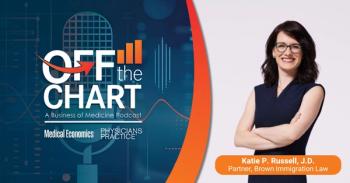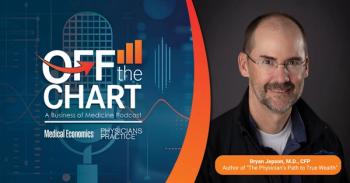
Making a Difference to Patients and Community
Working in a medically underserved community helped me to appreciate my true worth as a physician.
Five and a half years ago, I moved to Bakersfield, Calif., to practice medicine in a medically underserved community; in return, my compulsory two-year home country residence requirement, as a foreign medical graduate, would be waived. I had no idea what to expect.
As I embarked upon my journey - that I grew to love along the way - I saw my role as part physician/part advocate; someone who tried to improve things as much as she could for the less fortunate children who came to the clinic. Whatever battles they were facing in their lives - whether it was poverty, disease, parental abandonment or school stress - I liked to think that I provided a safe, consistent, and supportive environment where they could feel safe to open up and trust again, even if only for a very short while.
Signs of success came along in so many ways, some small, some large. Occasionally it was something as small as a smile from a foster-home child or an unexpected hug. Some successes were more obvious and publicly recognized. Our clinic was fortunate enough to be chosen by an outside agency to work on improving a clinic quality indicator.
We chose to work on improving our immunization rates. We selected a team approach - which included attending quarterly meetings with the grant donors, as well as other community providers, to brainstorm ideas on how to work toward this goal. Over a two-year period the entire clinic worked together to bring our immunization rates up from approximately 75 percent to 85 percent; exceeding the minimum health department requirement of 80 percent.
Our success was recognized at an American Academy of Pediatrics meeting by a vaccine manufacturer, which then invited me to present the work of our clinic at other meetings with providers from different institutions. Our clinic was recognized as a model clinic for its successful work in improving immunization rates in a setting where there were multiple barriers, as well as falling immunization rates across the United States.
I was also invited to participate in a video to educate parents and families about the risk of transmitting vaccine-preventable diseases in settings where many children are gathered together. Looking back now, I feel that our clinic's biggest success was not just improving our immunization rates, but also establishing such a strong team spirit.
Following the successful completion of our immunization project, our clinic initiated implementation of an electronic health record system. We had received grant money for the implementation and were required to complete the process in a very short time period. We faced many frustrating moments, from complete system breakdowns to staff ignorance of certain aspects of the programs. There were many moments when I was tempted to just kick the computer and walk away!
To my own and my administrator’s frustration, even though I had been chosen and trained as a "super-user," there were many challenges that I faced in the implementation process that simply had not arisen during the training process. And having grown up in an era just before the "computer generation" emerged, technical problem solving was simply not as instinctive as we both might have hoped. However, in spite of those teething problems, ultimately we ended up going fully electronic in record time. Later on, our clinic administrator told us proudly that we were ahead of the curve! Now I can truthfully say that I would not want to go back to paper records and documentation.
In spite of our clinic's many successes, we were ultimately faced with a hard truth: financial success is measured in different terms and is necessary to survive. Our non-profit clinic lost its funding from the agency that sustained and supported it. I decided it was time for me to move forward and find another position. In my last few months at the clinic, I was met by sad expressions from my patients' mothers who found out that I was leaving. Some even promised to follow me wherever I went. I felt truly touched and honored when mothers would come up to me in restaurants, offices, and shops to thank me for taking care of their children.
Looking back now, I feel the clinic and its staff were very successful, in spite of how things ended. I am proud to say that our clinic made a significant difference in the lives of the community it served and I am proud that I was a part of it for however long. At the end of even the most frustrating day I always felt that I was valued, appreciated, and needed, and as part of a team, I was making a difference to our patients. I feel fortunate and blessed to have been a part of such an organization.
Sabiha Hussain, MD, is a pediatrician who worked for the past five and a half years in a medically underserved community in Bakersfield, Calif. The non-profit clinic where she worked, The Family Health Center, was ultimately sold and continues to care for patients.
Newsletter
Optimize your practice with the Physicians Practice newsletter, offering management pearls, leadership tips, and business strategies tailored for practice administrators and physicians of any specialty.








